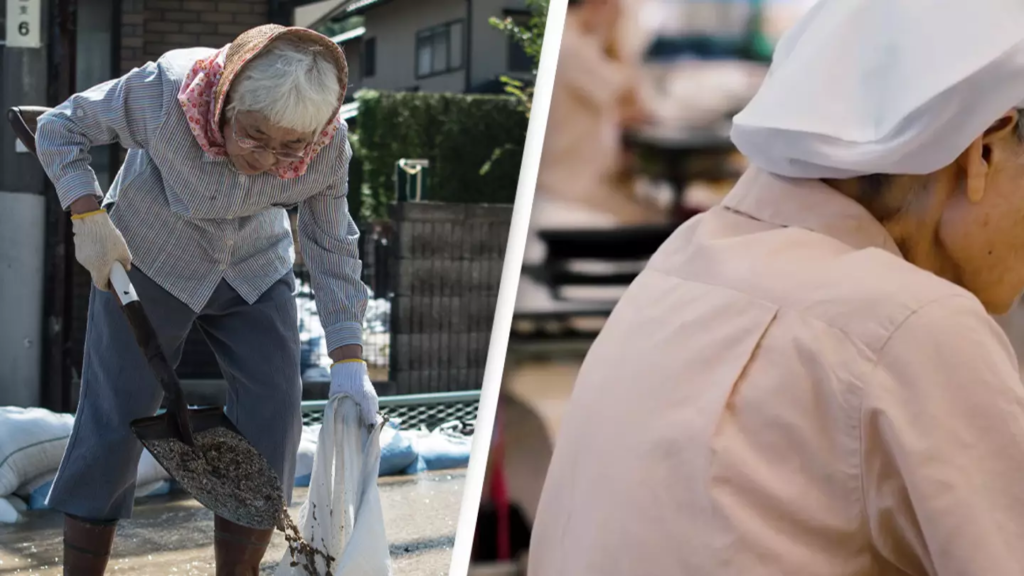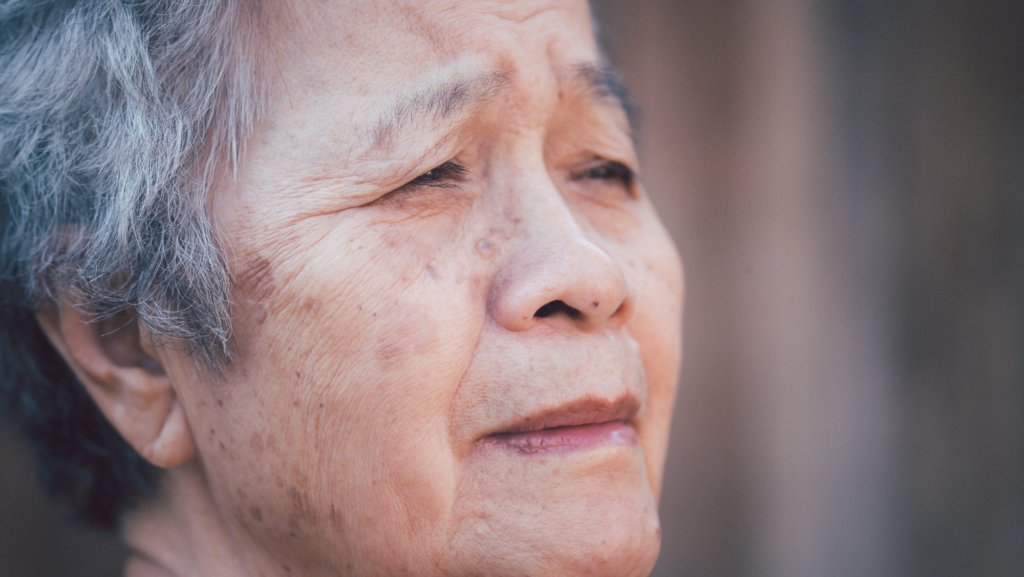Japanese woman unwillingly commits crime to stay in prison for free amid the nation’s deepening ageing crisis. Akiyo, an 81-year-old woman, has become a symbol of the harsh reality faced by Japan’s elderly population. She resorted to theft not out of greed or criminal intent but as a desperate measure to secure stability and care within prison walls.
Her story highlights a growing concern in Japan, where elderly individuals, struggling with poverty and social isolation, find themselves deliberately committing minor crimes to gain access to the shelter, food, and medical care provided in prisons.
The Desperation Behind Akiyo’s Actions
Akiyo’s journey into the criminal justice system began in her 60s when she first shoplifted food to survive. Living on a meagre pension that she received only once every two months, she found herself in a difficult position where basic necessities were often out of reach.
Her financial insecurity was compounded by the lack of support from her son, with whom she lived. Feeling unwanted in her own home and struggling with loneliness, Akiyo reached a breaking point.
“I made a poor decision and shoplifted, thinking it would be a minor issue. If I had been financially stable and had a comfortable lifestyle, I definitely would not have done it,” she admitted.
Her first brush with the law led to a prison sentence, where she found the unexpected benefit of stability—three meals a day, a structured environment, and medical care.
Read : Hayato Kawamura Buys 200 Abandoned Homes in Japan, Now Earns 140 Million Annually
After serving her time, she was released but soon faced the same struggles again. Upon returning to her son’s house, she felt unwelcome and feared his judgment. The cycle repeated itself when she stole again, not because she wanted to break the law but because she saw no other option.
Read : Top Ten Lessons to Learn from Japanese Culture
Her feelings of despair and helplessness are not unique. Many elderly individuals in Japan face similar situations, where economic hardship and loneliness push them toward petty crimes. For them, prison becomes a refuge rather than a punishment, a place where they can live without the constant fear of hunger and neglect.
Japan’s Ageing Crisis and Its Impact on Crime Rates
Akiyo’s case is not an isolated incident but a reflection of a broader societal problem in Japan. With one of the world’s oldest populations, Japan is facing an unprecedented ageing crisis.
The proportion of citizens aged 65 and above has been steadily increasing, with nearly 30% of the population now classified as elderly. This demographic shift has placed a significant strain on social services, leaving many elderly individuals without adequate financial or medical support.
According to government data from 2022, more than 80% of elderly female inmates in Japan were incarcerated for theft. The number of inmates aged 65 and above has risen nearly fourfold since 2003, highlighting the growing link between ageing and crime. Many of these crimes are not violent but rather acts of desperation, such as shoplifting food or essential items.

Prisons in Japan have had to adapt to this influx of elderly inmates, essentially transforming into makeshift nursing homes. Tochigi Women’s Prison, the largest female correctional facility in the country, houses around 500 inmates, with one in five being elderly. The prison provides special assistance for daily activities, as many elderly prisoners struggle with mobility issues, dementia, and other age-related ailments.
The unusual preference for prison life among some elderly individuals is a troubling sign of societal failure. Takayoshi Shiranaga, an officer at Tochigi Women’s Prison, noted that some elderly inmates would even be willing to pay a monthly fee of 20,000 to 30,000 yen (Rs 11,216 to Rs 16,824) just to stay in prison. This suggests that, for many, life outside prison is far more difficult than life within the system.
Public Reaction and the Search for Solutions
Akiyo’s story, first reported by CNN and widely shared on Chinese social media, has sparked heated debates about Japan’s treatment of its elderly population. Many online users expressed shock and sadness at her predicament, with some criticizing her son for not supporting her, while others pointed to the systemic issues that led her to crime.
“How selfish must a person be to tell his own mother: ‘I wish you could leave?’ This is heartbreaking,” one user commented.
Others compared her situation to the themes found in O. Henry’s classic stories, where characters commit crimes solely to be arrested and given shelter. Some saw Akiyo’s case as a warning sign of the consequences of an ageing society, where even having children does not guarantee support in old age.
“This is what an ageing society is like. Whether you have children or not does not make much difference. The main issue is not having enough money or the ability to take care of yourself,” another user noted.

Japan’s government has acknowledged the issue but has struggled to implement effective solutions. The country’s pension system is failing to meet the needs of its rapidly growing elderly population, and social support networks are often inadequate.
While the government has increased funding for elderly care facilities, many seniors either cannot afford them or prefer the security of prison, where their basic needs are guaranteed.
Experts have suggested several potential measures to address this crisis:
- Expanding Welfare Programs: Increasing financial aid and ensuring that elderly individuals receive adequate pensions to cover basic living expenses.
- Community Support Initiatives: Encouraging local communities to create support networks for elderly residents, reducing isolation and loneliness.
- Reintegration Programs: Providing structured reintegration programs for elderly ex-inmates to help them find stable housing and employment opportunities.
- Affordable Elderly Care Facilities: Developing more affordable assisted-living options so that elderly individuals do not see prison as their only viable option.
However, these solutions require significant investment and a shift in societal attitudes toward elderly care. If left unaddressed, the issue is likely to worsen, with more elderly individuals turning to crime as a means of survival.

Akiyo’s tragic story sheds light on the harsh realities faced by Japan’s elderly population. Forced into crime by financial hardship and social isolation, she found herself in a system where prison provided more stability than life outside.
Her case is a symptom of Japan’s larger ageing crisis, where increasing numbers of elderly individuals are committing minor crimes to secure food, shelter, and medical care.
The fact that many elderly inmates would willingly pay to stay in prison rather than struggle outside highlights the urgent need for reform. Japan must address the underlying issues of poverty, loneliness, and inadequate social support to ensure that its elderly citizens do not feel compelled to commit crimes simply to survive.
Until significant changes are made, cases like Akiyo’s will continue to emerge, serving as a stark reminder of the challenges facing an ageing society. The question remains: will Japan take action to support its elderly population, or will prison continue to be their only refuge?

